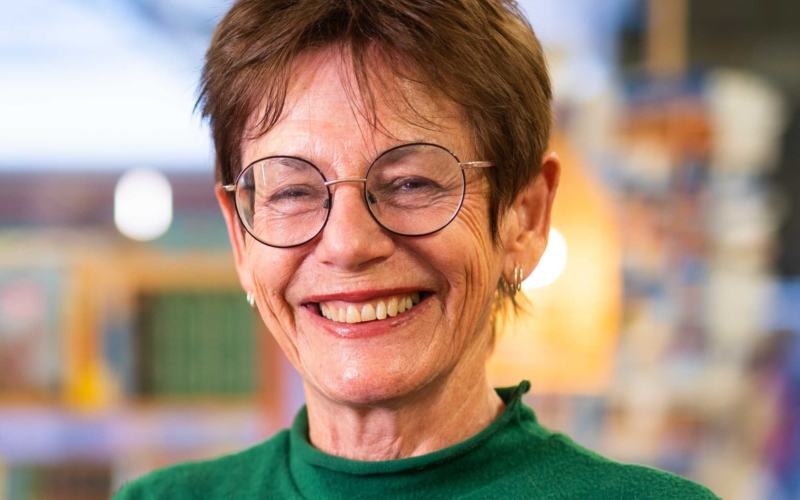
Monthly Lecture
Wandering with Intent
Kim Mahood
Kim will discuss the cross-cultural collaborative mapping process she has developed with Aboriginal people and organisations over the past 20 years, and how it both fuels and feeds off her writing and art practices.
Kim's art practice has long incorporated elements of mapping, which informed the early map-making with the Walmajarri people of Paruku. That work has provided much of the material for her writing projects, along with a methodology that could be described as literary mapping.
The painted topographical map harnesses the authority of western cartography with the authenticity of Indigenous ways of knowing country. Kim has always been invested in communicating across the physical and cultural divide that is a hallmark of Australia’s identity. Juggling two ways of knowing the country has become fundamental to her own sense of understanding the place to which she belongs, and wandering with intent has become a way of being at home.
Kim Mahood is a writer, artist and mapmaker. She divides her time between a dual-occupancy property she shares with other artists on the outskirts of Canberra, and extended trips to remote Australia for map-making projects. For the past thirty years she has returned regularly to Central Australia and the Tanami desert, where she grew up, and maintains her connection with the Warlpiri and Walmajarri people of the region. Her cross-cultural mapping work extends from the remote desert to the city, and is designed to map the Indigenous landscape back into visibility, and to foster communication and understanding between Indigenous and settler Australians.
This lecture will be preceded by a short presentation from Dr Moleen Nand, one of the Society's recent recipients of the John Lewis Prize for Excellence in Doctoral Research in Geography, on her thesis “Policy options for climate change loss and damage: A case study from Fijian agriculture”.
Image courtesy Sam Druce Reelwire Productions.
Date and Time
19 October 2023
5:30 pm
Location
Hetzel Lecture Theatre, Institute Building, State Library of South Australia. Lecture preceded by drinks and nibbles from 5:00 pmCost
Members: $Gold coin Non members: $10